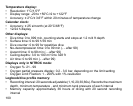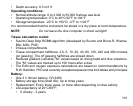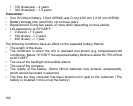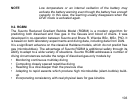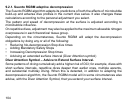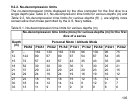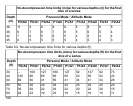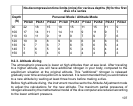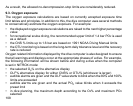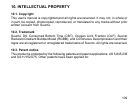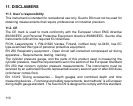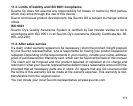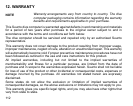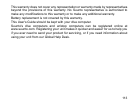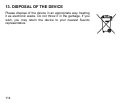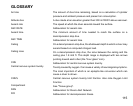As a result, the allowed no-decompression-stop limits are considerably reduced.
9.3. Oxygen exposure
The oxygen exposure calculations are based on currently accepted exposure time
limit tablesand principles. In addition to this, the divecomputer uses several methods
to conservatively estimate the oxygen exposure. For example:
•
the displayed oxygenexposure calculationsare raised tothe next higherpercentage
value
•
for recreational scuba diving, the recommended upper limit of 1.4 bar PO
2
is used
as a default
•
the CNS % limits up to 1.6 bar are based on 1991 NOAA Diving Manual limits
•
the OTU monitoringis basedon thelong-term dailytolerance level andthe recovery
rate is reduced
Oxygen related informationdisplayed bythe dive computeris alsodesigned to ensure
that allwarnings and displays occur at theappropriate phases of a dive. For example,
the following information will be shown before and during a dive when the computer
is set in NITROX mode:
•
the selected O
2
% on the alternative display
•
OLF% alternative display for either CNS% or OTU% (whichever is larger)
•
audible alarms aregiven andthe OLF valuestarts toblink whenthe 80% and100%
limits are exceeded
•
audible alarms are given and the actual PO
2
value blinks when it exceeds the
preset limit
•
in dive planning, the maximum depth according to the O
2
% and maximum PO
2
selected
108



